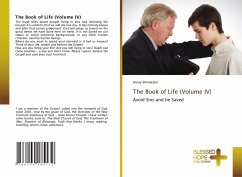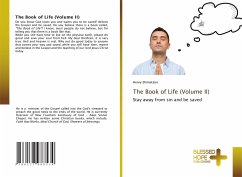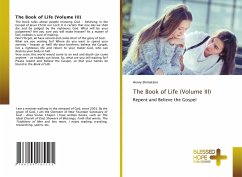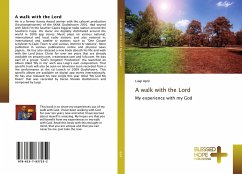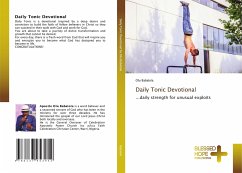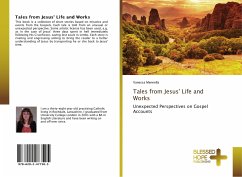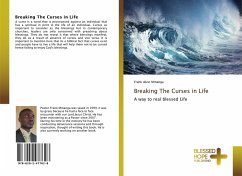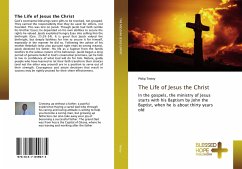
The Life of Jesus the Christ
In the gospels, the ministry of Jesus starts with his Baptism by John the Baptist, when he is about thirty years old
Versandkostenfrei!
Versandfertig in 6-10 Tagen
40,99 €
inkl. MwSt.

PAYBACK Punkte
20 °P sammeln!
God's covenantal blessings were gifts to be received, not grasped. They carried the responsibility that they be used for others, not hoarded. This was lost on Jacob. Though Jacob had faith (unlike his brother Esau), he depended on his own abilities to secure the rights he valued. Jacob exploited hungry Esau into selling him the birthright (Gen. 25:29-34). It is good that Jacob valued the birthright, but deeply faithless for him to secure it for himself, especially in the manner he did so. Following the advice of his mother Rebekah (who also pursued right ends by wrong means), Jacob deceived hi...
God's covenantal blessings were gifts to be received, not grasped. They carried the responsibility that they be used for others, not hoarded. This was lost on Jacob. Though Jacob had faith (unlike his brother Esau), he depended on his own abilities to secure the rights he valued. Jacob exploited hungry Esau into selling him the birthright (Gen. 25:29-34). It is good that Jacob valued the birthright, but deeply faithless for him to secure it for himself, especially in the manner he did so. Following the advice of his mother Rebekah (who also pursued right ends by wrong means), Jacob deceived his father. His life as a fugitive from the family testifies to the odious nature of his behaviour. Jacob began a long period of genuine belief in God's covenantal promises, yet he fails to live in confidence of what God will do for him. Mature, godly people who have learned to let their faith transform their choices (and not the other way around) are in a position to serve out of their strength. Courageous and astute decisions that result in success may be rightly praised for their sheer effectiveness.



